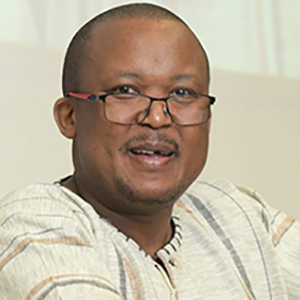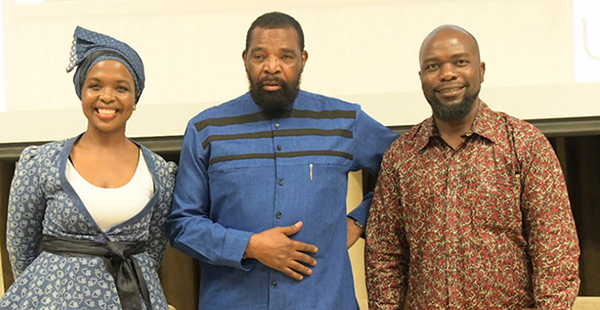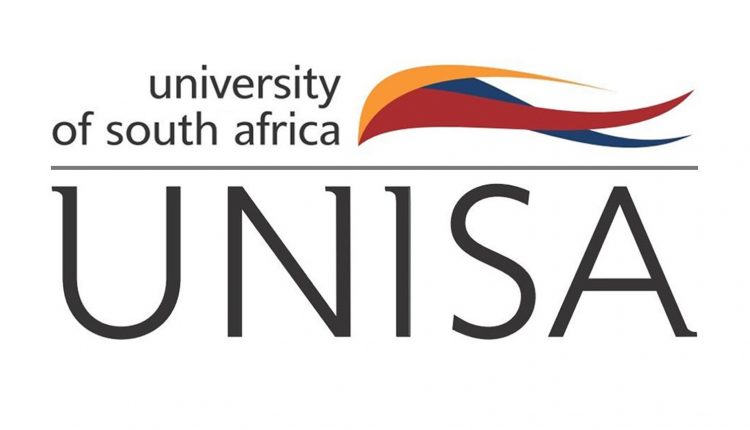University of South Africa: Embracing a Dynamic Approach to Address Present and Future Challenges in Higher Education
Prof Thenjiwe Meyiwa, Vice-Principal of Research, Postgraduate Studies, Innovation and Commercialisation, welcomed the distinguished guests comprised of staff and students from various portfolios and colleges.
Meyiwa stated that the events, which run from 20 to 22 September 2023, comprising the International Festival of academic engagement between students and staff and the collaboration of Unisa and Times Higher Education, take place within the context of Unisa’s 150th anniversary celebration and Heritage Month. She remarked: “This festival is the university’s celebration of national and international academic pride while embracing the diversity of our cultures.” She added: “We need to provide a platform for collaboration, locally and internationally, by integrating academic, social, and cultural dynamics.”
Meyiwa hoped students and staff could engage in higher education’s socio-political, economic, and cultural challenges through the festival. “We aim to empower our students through these sessions and allow them to voice their concerns so that in the future, they can be more invested in such platforms and the advocacy of their learning,” she said.

Bheki Nxumalo
Bheki Nxumalo, Acting Deputy Director of the Advocacy and Resource Centre for Students with Disabilities (ARCSWiD), centred his address on student engagement. He said that the barometer for successful student engagement includes engaged students, involvement in research and internships, participation in student governance and peer collaborative learning. He remarked: “Students who are engaged and participate in these areas have a high success rate and become good examples in their communities and the quintessential university alumni.”
Importance of climate change education in early childhood
Dr Moleboheng Ramulumo, Lecturer, Department of Science and Technology Education, gave a presentation on the theme The Aftermath of BRICS and Impact of Geopolitical Tension on Higher Education, on the sub-theme: Fostering Global Citizenship in Early Childhood Climate Change Education through Digital Literacy. Ramulumo shared that her core guides are her two sons, who gave her the passion to pursue her PhD.
She argued the importance of teaching children about climate change. In this regard, Ramulumo argued that early childhood is a critical age for shaping attitudes and behaviours and is ideal for instilling eco-conscious values and habits. She added that early childhood climate education introduces global citizenship, where children can learn that environmental challenges are interconnected and that they become part of a global community responsible for addressing climate change through this education.
“Children can easily access climate data change and research online, which can enhance their understanding of climate change,” said Ramulumo, who advocates for skilling children in digital literacy.
Her current work includes collaboration with a Turkish student on a game centred on Eco-Kids (children who are nature enthusiasts concerned with their environment). She said the game aims to educate and inspire children to become environmentally conscious and proactive in addressing energy challenges.

Dr Moleboheng Ramulumo, Prof Joseph Diescho and Prof Amos Saurombe
Partnerships to advance innovation
Prof Auros Saurombe, Lecturer in Public, Constitutional and International Law, expressed that looking at PhD outputs in South Africa compared to other BRICS countries, the country’s annual outputs equal one university in Brazil, namely, the University of São Paulo. “This university produced more PhDs than the rest of South African universities. This should say a lot about our contribution, and we should do something about it,” he stressed.
Saurombe continued to argue that if the country’s education does not impact societal needs, we are not failing ourselves but future generations. “As universities, we need to come together and find ways to cooperate towards a common solution in areas of concern,” he said.
“I have students running a project in Nairobi dealing with smart agriculture to deal with the drought, which has been a major challenge in Africa. Therefore, there is a need for climate-smart technologies and their enhancement to maximise their use,” said Saurombe. In this context, he said that universities must create innovation hubs that can incubate researchers, entrepreneurs, private and public partnerships to develop technologies that can assist in the agricultural sector, climate change and alternative power generation.
Regarding funding, Saurombe says that the New Development Bank presents opportunities that academics can tap into by writing significant proposals that can attract financing. He also stated that academics should convince the governing party with research proposals that speak to issues about government objectives.

